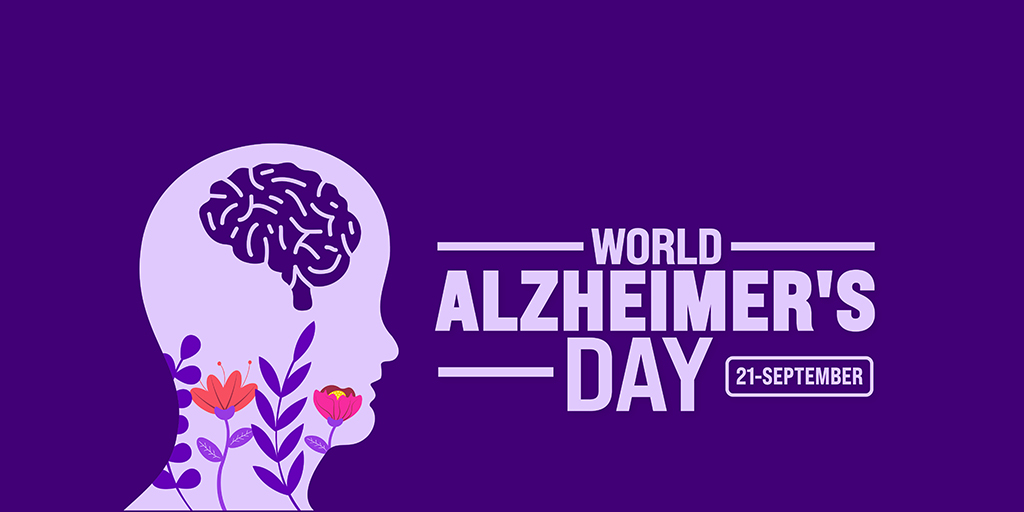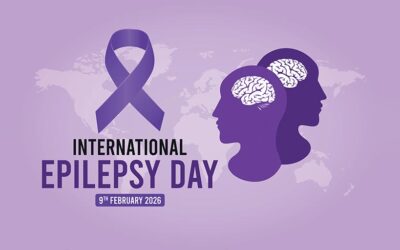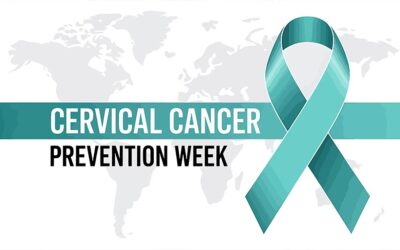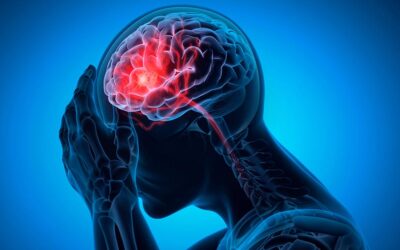World Alzheimer’s Day 2025: Understanding the Disease and Raising Awareness

World Alzheimer’s Day, observed every year on the 21st of September, serves as a reminder of the growing impact of Alzheimer’s disease on individuals, families, and communities. Recognised as the most common cause of dementia, Alzheimer’s disease gradually impairs memory, thinking, and behaviour, eventually affecting the ability to carry out even simple, everyday tasks. With millions of people worldwide living with this condition, raising awareness is key to promoting early diagnosis, improving care, and supporting ongoing research. In this article, we will explore what Alzheimer’s disease is, its causes, symptoms, stages, diagnosis, and the importance of awareness in managing the condition effectively.
Table of Contents
ToggleWhat is Alzheimer’s Disease?
Alzheimer’s disease is a progressive neurological disorder that affects the brain’s ability to function normally. It is the leading cause of dementia, accounting for 60-70% of cases globally. The condition damages brain cells and disrupts communication between them, leading to a steady decline in memory, thinking skills, and reasoning. Over time, even simple tasks such as recognising familiar faces, speaking clearly, or managing daily activities become challenging.
Unlike normal age-related forgetfulness, Alzheimer’s is a disease with distinct underlying changes in the brain, including the build-up of abnormal protein deposits known as amyloid plaques and tau tangles. While it cannot be cured, timely diagnosis and appropriate management can slow its progression and improve quality of life.
Causes and Risk Factors for Alzheimer’s Disease
The exact reason for Alzheimer’s disease is not fully understood, but it is linked to damage and death of brain cells caused by abnormal protein build-up. Two key changes seen in the brains of affected individuals are amyloid plaques, which block communication between nerve cells, and tau tangles, which disrupt their internal transport systems. Over time, these changes lead to widespread brain shrinkage and loss of function.
Several factors can increase the likelihood of developing Alzheimer’s disease, such as:
- Age: The risk increases significantly after the age of 65.
- Genetics and family history: Certain genes, such as APOE-e4, may raise susceptibility.
- Gender: Women are statistically more likely to develop Alzheimer’s than men.
- Head injuries: Severe or repeated head trauma may increase risk.
- Cardiovascular health: Conditions such as high blood pressure, high cholesterol, diabetes, and stroke can contribute.
- Lifestyle factors: Physical inactivity, poor diet, smoking, and lack of mental stimulation can raise risk.
Stages of Alzheimer’s Disease
Alzheimer’s disease develops gradually, with symptoms worsening over time. The progression is commonly divided into three main stages:
Early Stage (Mild)
In this phase, memory lapses are noticeable but often mistaken for normal ageing. Individuals may have difficulty recalling recent events, misplace items more often, or struggle to find the right words. They usually remain independent but may need reminders for daily tasks.
Middle Stage (Moderate)
This stage sees a more significant decline in cognitive function. Confusion about time and place becomes common, along with trouble recognising familiar people. Behavioural changes such as irritability, anxiety, and sleep disturbances may emerge. Assistance with personal care and daily activities becomes increasingly necessary.
Late Stage (Severe)
In advanced Alzheimer’s, individuals lose the ability to communicate coherently and require round-the-clock care. They may become bedridden, experience difficulty swallowing, and be prone to infections. The decline in brain function affects physical abilities as well as mental capacity.
Alzheimer’s Disease Symptoms
Alzheimer’s disease affects each person differently, but certain symptoms are commonly seen as the condition progresses. Early detection of these warning signs can make a significant difference in managing the disease.
Common symptoms include:
- Memory loss that disrupts daily life, particularly difficulty recalling recent events or newly learned information.
- Difficulty planning or solving problems, such as following a familiar recipe or managing monthly bills.
- Confusion with time or place, including losing track of dates, seasons, or location.
- Trouble understanding visual images and spatial relationships, which may affect driving or navigation.
- Problems with speaking or writing, including difficulty finding words or following a conversation.
- Misplacing items and being unable to retrace steps to find them.
- Withdrawal from social activities or hobbies once enjoyed.
- Changes in mood and personality, such as increased anxiety, suspicion, or depression.
These symptoms often start subtly and become more pronounced over time, underscoring the importance of early medical evaluation.
Diagnosis of Alzheimer’s Disease
Diagnosing Alzheimer’s disease involves a comprehensive evaluation to rule out other possible causes of memory loss and cognitive decline. There is no single definitive test; instead, doctors use a combination of assessments to arrive at an accurate diagnosis.
Common steps in the diagnostic process include:
- Medical history review: Understanding symptoms, family history, and any underlying health conditions.
- Physical and neurological examination: Checking reflexes, muscle tone, coordination, and sensory responses.
- Cognitive and memory tests: Assessing problem-solving, language skills, attention, and short-term memory.
- Brain imaging: Techniques such as MRI, CT scan, or PET scan help detect brain shrinkage or other abnormalities.
- Laboratory tests: Blood tests to rule out vitamin deficiencies, thyroid disorders, or infections.
- Psychiatric evaluation: Identifying depression or other mental health issues that may mimic dementia symptoms.
Complications of Alzheimer’s Disease
As Alzheimer’s disease progresses, it affects not only memory and thinking but also the body’s ability to function, leading to a range of complications. These challenges often require increased medical care and support.
Some common complications include:
- Inability to perform daily activities: Tasks such as eating, bathing, dressing, and using the toilet may become impossible without assistance.
- Nutritional problems: Difficulty chewing or swallowing can lead to weight loss and malnutrition.
- Infections: Reduced mobility and swallowing difficulties increase the risk of pneumonia and urinary tract infections.
- Falls and injuries: Poor balance and coordination make falls more likely, leading to fractures or hospitalisation.
- Behavioural and psychological issues: Agitation, aggression, anxiety, and depression can strain both patients and caregivers.
- Complete dependency: In advanced stages, patients require round-the-clock care for both medical and personal needs.
When to See a Doctor
Not all memory lapses are a sign of Alzheimer’s disease, but certain patterns and changes should prompt medical attention. Seeking help early increases the chances of identifying treatable conditions and allows timely planning if Alzheimer’s is diagnosed.
It is advisable to consult a doctor if:
- Memory loss is persistent and disrupts daily activities.
- Confusion about time, place, or familiar routes becomes frequent.
- Noticeable changes in personality, mood, or social engagement occur without a clear cause.
- There are signs of declining judgment or increased safety risks, such as leaving appliances on.
Early evaluation can help distinguish Alzheimer’s from other medical issues that may present with similar symptoms, such as vitamin deficiencies, thyroid disorders, depression, or medication side effects.
How World Alzheimer’s Day Promotes Awareness
World Alzheimer’s Day, observed on 21 September, plays a crucial role in educating communities about the realities of living with Alzheimer’s disease and dementia. Organised by Alzheimer’s associations, healthcare providers, and advocacy groups worldwide, the day focuses on dispelling myths, encouraging early diagnosis, and reducing the stigma surrounding the condition.
Awareness campaigns often include public seminars, memory screening events, caregiver training sessions, and media outreach. Educational materials highlight early signs of Alzheimer’s, available treatments, and lifestyle changes that may help reduce risk. In many countries, monuments and buildings are lit in purple, the colour symbolising Alzheimer’s awareness, to honour those living with the disease and their families.
By fostering understanding and compassion, World Alzheimer’s Day empowers communities to support patients and caregivers, advocate for better healthcare services, and contribute to ongoing research efforts.
Why Choose Graphic Era Hospital for Alzheimer’s Disease Treatment?
Managing Alzheimer’s disease requires specialised medical care, accurate diagnosis, and ongoing support for both patients and caregivers. At Graphic Era Hospital, the focus is on delivering comprehensive, patient-centred care through expertise, technology, and compassion. We offer:
Expert Care
The hospital’s team of experienced neurologists and dementia specialists develops personalised treatment plans based on each patient’s stage of disease, symptoms, and overall health.
Cutting-Edge Technology
With advanced brain imaging, cognitive testing facilities, and laboratory support, the hospital ensures accurate diagnosis and effective monitoring of disease progression.
Patient-Centred Care
Care plans include not just medical treatment but also counselling, caregiver guidance, and support for daily living challenges, ensuring dignity and comfort for patients at all stages of the disease.
Taking Action for Better Alzheimer’s Care
Alzheimer’s disease affects millions worldwide, but increased awareness, early diagnosis, and timely medical support can make a meaningful difference in how it is managed. World Alzheimer’s Day serves as a reminder to recognise early signs, seek expert help, and support those living with the condition. At Graphic Era Hospital, compassionate care, advanced diagnostics, and personalised treatment plans work together to improve quality of life for patients and their families. For specialised consultation or Alzheimer’s disease treatment in Dehradun, call 18008897351 to book an appointment with our neurology experts.
Frequently Asked Questions
What are Alzheimer’s disease symptoms to watch out for?
Alzheimer’s disease symptoms may include persistent memory loss, difficulty solving problems, confusion about time or place, trouble with language, poor judgment, and changes in mood or personality.
What are the causes of Alzheimer’s disease?
The causes of Alzheimer’s disease are linked to brain changes such as amyloid plaques, tau tangles, and nerve cell damage. Age, genetics, head injuries, cardiovascular conditions, and lifestyle factors can increase risk.
How is the diagnosis of Alzheimer’s disease made?
An Alzheimer’s diagnosis is based on medical history, neurological exams, cognitive tests, brain imaging, and laboratory investigations to rule out other causes of dementia symptoms.
Are there early stages of Alzheimer’s disease where treatment can help?
Yes. In the early stages of Alzheimer’s disease, treatment can help slow progression, improve daily functioning, and support memory retention through medication, therapy, and lifestyle changes.
Where can I find Alzheimer’s disease treatment near me in Dehradun?
Graphic Era Hospital offers Alzheimer’s disease treatment near me in Dehradun, with expert neurologists, advanced diagnostic tools, and comprehensive patient and caregiver support.
Can Alzheimer’s disease lead to complications if untreated?
Yes. Without timely intervention, Alzheimer’s disease can cause complications such as infections, nutritional issues, behavioural changes, and complete dependence for daily activities.
By Specialities
- Bariatric Surgery
- Cancer Care
- Cardiology
- Dental
- Dermatology
- Diabetes & Endocrinology
- Endocrinology and Diabetes
- ENT (Ear Nose Throat)
- Eye Care
- Gastroenterology
- Haematology
- Health Awareness
- Health Care
- Health Tips
- Hematology
- Hepatology
- Internal Medicine
- Mental Health and Behavioural Sciences
- Metabolic
- Neonatology
- Nephrology
- Neurology
- Nutrition & Dietetics
- Obstetrics & Gynaecology
- Oncology
- Ophthalmology
- Orthopaedics
- Paediatric
- Physiotherapy & Rehabilitation
- Plastic and Reconstructive Surgery
- Psychology
- Pulmonology
- Rheumatology
- Spine
- Urology
Recent Posts
- International Epilepsy Day 2026: A Call to End Stigma and Discrimination
- Cervical Cancer Prevention Week 2026: A Global Call to Prioritise Cervical Health
- World Leprosy Day 2026: Why Awareness is Still Important Today
- What is a Stroke: Causes, Symptoms & Treatment
- Glaucoma Awareness Month 2026 : Raising Awareness to Prioritise Eye Health
Need expert medical advice?
Share your details and our healthcare specialists will reach out to assist you.
By proceeding, you acknowledge and agree to our Privacy Policy, Terms of Use, and Disclaimer.




















